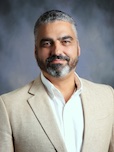The God of the Apps
Late in the twelfth century, Benedictine monks in England developed a sophisticated technology that allowed for greater regularity and precision of their daily work and prayers. The mechanical clock, a significant improvement over sundials and water-based clocks of the time, gave the Benedictines what they desired: synchronization and control over the brothers’ activities.[1]
The impact of this remarkable device spread, and use of the clock soon extended beyond the monastery and into the marketplace. With greater regularity and control came greater production, which in turn led to greater demand and consumption. The tool transformed the times.
To live in the early twenty-first century is to be dependent on our tools—maybe even devoted to our tools. Global networks and digital media have transformed our times and revolutionized how we communicate, consume, learn, and produce. And like the clock, the development of digital media as tools to make production more efficient has been embraced without significant social or spiritual reflection. It is in the years after the initial adoption of such technologies when outcomes inherent in the technology are revealed. To fail to see this is to place a faith in technology it was never intended to bear. Pepperdine University communications professor, Craig Detweiler, cautions:
Our faith in technology connects us to long lost friends. It also enables us to avoid people we’d rather text with than talk to. It is our hiding place. Our faith in technology is so widespread that we feel we must be always available, always connected. Technology demands our attention… Our embrace of technology is so boundless that we have poured staggering riches on those who brought us these magic devices.[2]
So, is there an inherent evil in digital technologies? Certainly not. An iPhone can no more be good or evil than a microwave. But for the discerning Christian, there should always be reflection and intention before embracing anything as part of our lives. What do we gain when we exchange our bound Bibles with a digital app? What do we lose? Can social media operate as a rich environment for spiritual expression and challenge? Or does the medium overshadow the message? When we pacify our kids by giving them digital devices at increasingly younger ages, are we training them to look down when they should be looking up?
These are cultural trends that should be challenged, and engaged with in a way that promotes healthy practices as children of God seeking knowledge and connection with others. What is needed is a “theology of technology” where we welcome reflection and biblical dialogue into our use of modern tools. Such reflection might include the following considerations:
Connection over Content
There is a narcissism inherent in social media that says, “I don’t experience it unless I share it.” More than once I have checked myself while at an event wanting to reflexively upload pictures or commentary. For one thing, why do I assume everyone is so interested in my life! But more importantly, when we pick up our phones in those moments, we disconnect for the moment itself and from those with whom we are sharing it.
Beauty over Benefit
New tools scream for our attention and try to convince us we should have everything we want on demand. This is the Uber Effect: I want my ride now… I want my food now… I want my coffee now. But when we seek to drive out ego, control, and comfort, beauty emerges. More pathways open to think about creativity and contribution to God’s Story beyond simply seeking our own benefit.
Purpose over Product
As one who works among the very institutions and people who produce these tools, I recognize the allure of new gadgets. It becomes all too easy for me to embrace a new device without question. Here in Silicon Valley it is an unstated virtue to adopt the latest thing as soon as it hits the shelves. But tools, by their very nature, are not intended to be ends in themselves. Christians always are to have their true end in mind, possibly no better expressed than in the Westminster Shorter Catechism: “to glorify God and to enjoy him forever.” We make countless small choices every day whether to bring glory to God, or to another. Technology, with the increasing role it plays in our lives, is tangled up in those choices.
As our devices get smaller, faster, smarter, and cheaper, it’s tempting to give them greater power and influence in our lives. And certainly, there is a place for employing tools for efficiency, connectivity, and even entertainment. But if we learn anything from our ancestors in the Garden, it should be that access to knowledge and truth is the sacred domain of God. We are to seek that through him, yield our efforts to grasp that to him, and be available as stewards for him. And we must recognize that it is specifically in the areas of knowledge and truth where the purposes of God to restore his broken cosmos are revealed. The Word of God, sent out from the Risen Son, to his apostles, through his Church, remains the greatest knowledge and the highest truth. To this end, the charge of Paul to his young colleague, Timothy, is timely for us:
But as for you, continue in what you have learned and have firmly believed, knowing from whom you learned it and how from childhood you have been acquainted with the sacred writings, which are able to make you wise for salvation through faith in Christ Jesus. All Scripture is breathed out by God and profitable for teaching, for reproof, for correction, and for training in righteousness, that the man of God may be complete, equipped for every good work (2 Tm 3:14-17).
[1] Postman, Neil, Technopoly: The Surrender of Culture to Technology (New York: Knopf, 1992), 14–15.
[2] Detweiler, Craig, iGods: How Technology Shapes Our Spiritual and Social Lives (Chicago: Brazos Press, 2013), 2.
 Garrett Brown directs Christian Union Caritas at Stanford University. Garrett is a native of the San Francisco Bay Area, where he explored faith from a young age. After studying communications at Biola University, he earned a Master of Divinity from Talbot School of Theology, and, eventually, a Doctorate of Ministry in Theology and Culture from Fuller Theological Seminary in Pasadena. Garrett has over twenty years of vocational ministry experience, having served as a church planter and pastor in Silicon Valley for most of that time. He also serves on the board for a local homeless and recovery ministry.
Garrett Brown directs Christian Union Caritas at Stanford University. Garrett is a native of the San Francisco Bay Area, where he explored faith from a young age. After studying communications at Biola University, he earned a Master of Divinity from Talbot School of Theology, and, eventually, a Doctorate of Ministry in Theology and Culture from Fuller Theological Seminary in Pasadena. Garrett has over twenty years of vocational ministry experience, having served as a church planter and pastor in Silicon Valley for most of that time. He also serves on the board for a local homeless and recovery ministry.
Garrett and his wife, Susan, met while studying abroad in Europe. Together they have three children and live in Redwood City. Garrett enjoys playing guitar, hikes with his dog, and supporting Cardinal Football! Garrett is passionate about helping students from all backgrounds engage deeply with Scripture.



